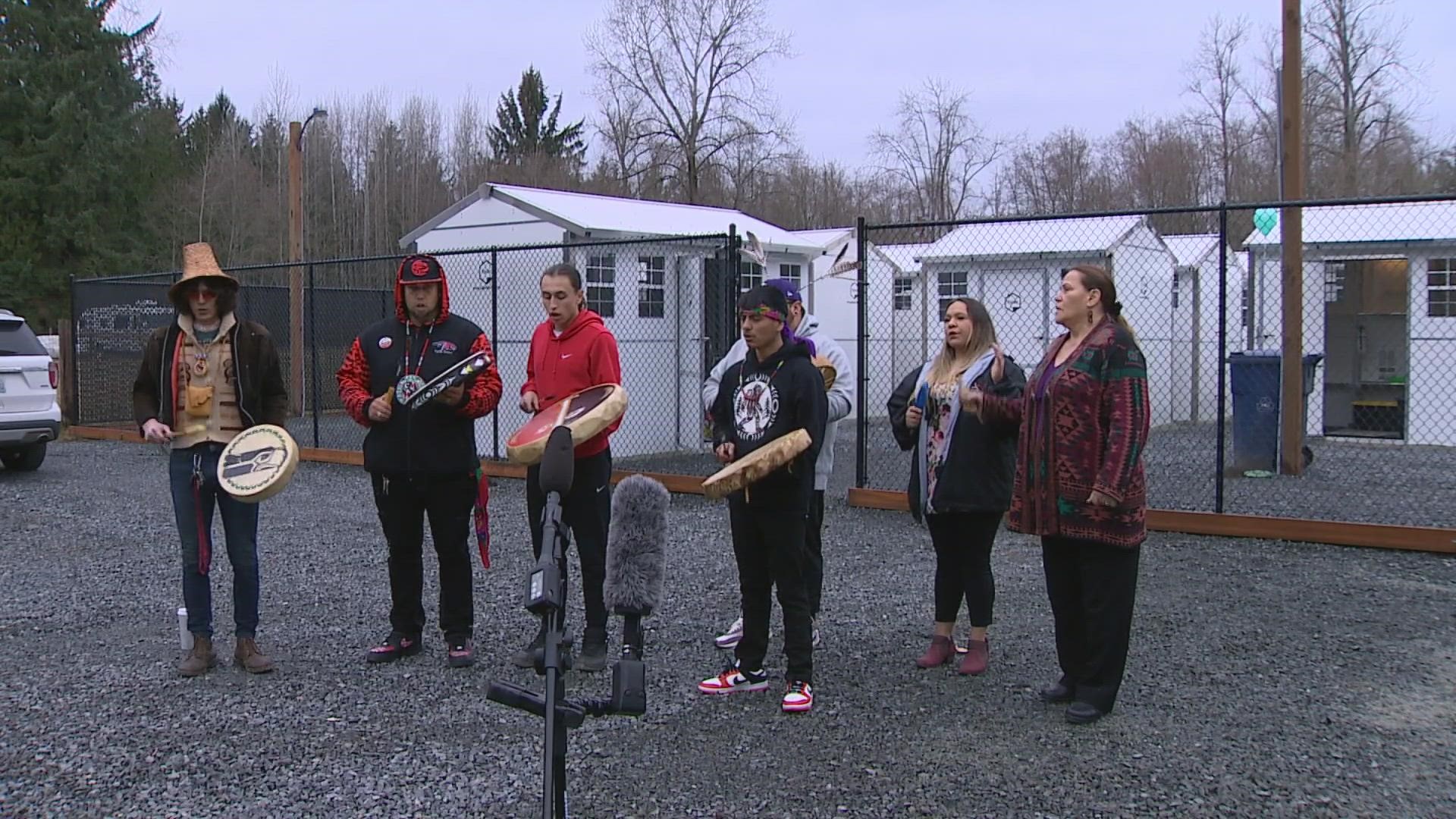TULALIP, Wash. — Twenty new shelters are now open on the Tulalip Indian reservation that will house up to 30 men, women and children.
The project is a rare and unique opportunity.
"When I started researching this, I couldn't find anything like it on a reservation," said Tulalip Chief Administrative Officer Rochelle Lubbers. "This is something special."
The roads around the reservation expose a sad reality. People push shopping carts that contain everything they own. A man sorts through piles of garbage looking for something to eat.
Lives are being lost to addiction and poverty. Futures are falling apart.
Sarah Al-Khalil knows all about it. She was addicted on this reservation, and lost her home, her teaching job and her three kids.
Al-Khalil was barely surviving.
"If you can't get out of survival mode, then you can't get clean and you can't get support," Al-Khalil said.
Federal statistics show Native Americans make up less than 2% of the U.S. population but 10% of the homeless population.
These new shelters are opening a door to recovery on the Tulalip reservation. They come equipped with a bed, electricity, heat and air conditioning.
It's a brand new community providing the homeless and addicted with a path toward a better life.
"This is a matter of life and death for our people," said Tulalip Chairwoman Teri Gobin at a blessing ceremony, Monday.
The shelters are designed to be the first step in a continuum of care on the reservation, including medically-assisted drug treatment at the tribe's brand new clinic, as well as transitional housing.
Housing and treatment will cater to the Native culture -- helping people feel more at home while they're finding their way.
"Here on the reservation we all know each other. There are trusted relationships. There are family and friends. It can be intimidating to leave the reservation for those services," said Lubbers. "People do better in their recovery when they feel connected."
After being homeless for six years, Al-Khalil is now two years sober and works for the Everett company that builds the shelters.
The Tulalip village is Pallet Shelter's 100th development.
Al-Khalil has gone from homeless to a provider of homes and of hope.
"It's a blessing," Al-Khalil said. "I'm happy to be alive."

